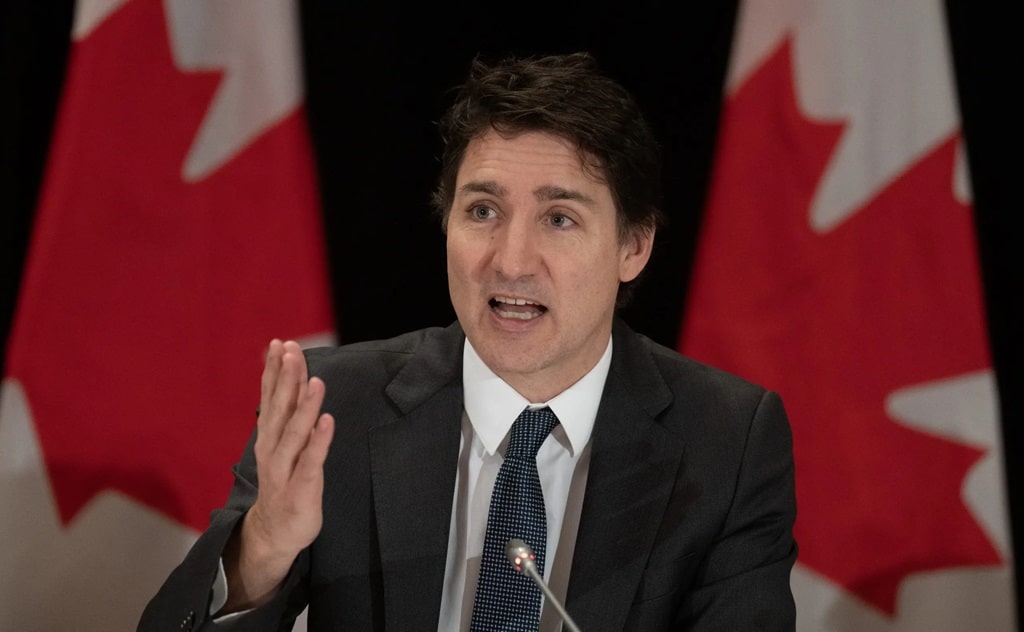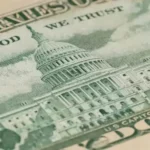Prime Minister Justin Trudeau expressed optimism Tuesday about working with U.S. President-elect Donald Trump, ramping up his rhetoric again by saying Canada has dealt with his trade threats before and can do so again.
Trudeau tried to play down possible retaliations by Trump over his past rhetoric, saying Trump’s trade threats are mostly aimed at China, and Canada has previously demonstrated a willingness to align with the United States against the Chinese if required.
Trudeau said that a concerted approach to Chinese trade and actions to address the country’s oppressive trade practices could help Canada win Trump’s favor.
For years, Trump has accused China of purposely weakening its currency and flooding the world with cheap items manufactured by low-wage workers, replacing American-made products and forcing jobs away.
The Trump administration is concerned about international pressures, particularly China’s overcapacity and unfair trade tactics. Canada is already aligned with the United States, and we can accomplish great things together,” Trudeau stated.
Trudeau’s allusion
Canada and the United States collaborated as “friends and partners” during Trump’s first term, “and we’re going to do that again,” Trudeau stated.
Trudeau’s allusion to being “aligned” with the Americans refers to Canada’s decision in August to join the US in imposing punishing tariffs on Chinese-made electric vehicles to preserve the country’s young EV industry.
As of October 1, Canada imposed a 100% surtax on Chinese-made EVs, doubling the cost of those imported vehicles and making them significantly less appealing to Canadian buyers.
According to a readout of Trudeau’s first contact with Trump since the election, the two discussed “addressing unfair trading practices in the global economy. While Canada and the United States agree on EVs, there may be difficulty with Mexico, the third member in the continental free trade agreement.
Trump has threatened to impose heavy tariffs on Mexico, with up to 200 percent levies on vehicles imported from the nation, to make it less appealing for automakers to build operations there.
In recent years, there has been a significant increase in automotive manufacturing in Mexico; most of that product is bound for the United States. Chinese EV manufacturer BYD has been seeking areas for a Mexican facility that may supply the US market.
“All I’m doing is saying… I’ll put a number where they can’t sell one car,” Trump said of Mexico in October about promised tariffs.
“I don’t want them hurting our car companies.”
Canada-U.S.-Mexico Trade Agreement
He has also threatened Mexico with high tariffs if it does not do more to stem the flow of migrants entering the United States. Kelly Craft, Trump’s former ambassador to Canada, has claimed the president-elect is also concerned about transshipments.
That is the practice of countries such as China shipping goods to Mexico so that they may be sold tariff-free in Canada and the United States under the Canada-U.S.-Mexico Trade Agreement, which Trump renegotiated during his administration.
“There are manufacturers producing products for the U.S. and Canada in Mexico, and he wants to reduce that, he wants us to have indigenous manufacturing capability,” Craft said of Trump in an interview with Radio-Canada before last week’s presidential election.
Meanwhile, Ontario Premier Doug Ford expressed similar concerns Tuesday, suggesting that Canada and the United States should negotiate a future free trade agreement alone and exclude Mexico.
“Since signing on to the new NAFTA, Mexico has allowed itself to become a backdoor for Chinese cars, auto parts and other products into Canadian and American markets,” Ford told reporters.
“If Mexico won’t fight transshipment by, at the very least, matching Canadian and American tariffs on Chinese imports, they shouldn’t have a seat at the table or enjoy access to the largest economy in the world.”
Regarding Trump’s pledge to impose a minimum 10% tariff on all imports — a policy that could be applied to Canada — Trudeau said Tuesday that he is working to persuade the incoming president that the approach would be terrible for businesses and the workers they employ on both sides of the border.
During Trump’s first term, Canada was subjected to tariffs on steel and aluminum from the United States, which was an economically destructive policy. Canada replied with dollar-for-dollar retaliatory tariffs, forcing the United States to back down.
Trudeau stated that if necessary, Canada may undertake this strategy again.
“We responded to tariffs he brought in with a demonstration that the interdependence of our economies means there are great jobs on both sides of the border that rely on the smooth flow of goods,” he told reporters. “That’s going to continue to be the case.”
However, trade experts believe that even the possibility of tariffs might be detrimental to Canada since it may cause corporations to reconsider investing here.
Related News:
Former NDP Leader Says Trudeau is Top on Trumps Hit List









